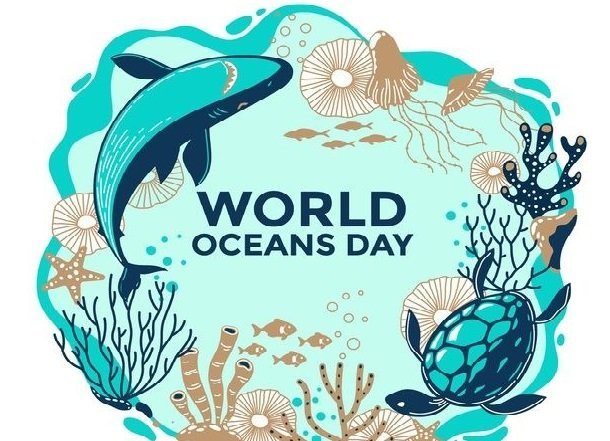Oceans and seas together support nearly 15% of life forms present on the Earth. A bigger percentage i.e. 80% of species are known to dwell on land and a small 5% survives in freshwater. The percentage of species dwelling underwater, though, might appeal small when compared with land, it is critically important to understand that ocean life forms and the overall ocean’s health is intricately linked with human health.
On this World Ocean Day (June 8), the United Nations urges humanity “to spread awareness of the critical roles the ocean plays to make planet Earth habitable and to support endeavors to reverse the deterioration of the ocean’s health.”
What we have been absorbing, since childhood, is that our planet is covered around 71% with water. What’s awful is that we still fail to understand that it’s just not a percentage anymore, but a volume is known to harbor diverse life forms, whose health and integrity are crucially important to what’s there on the land.
Oceans to Humans
The ocean, also known as the biosphere's marine realm, provides and governs the water we drink, formation of rainwater, coastlines, weather and climatic patterns, and food – something of more concern for coastal livelihood.
Source of Oxygen
Scientists estimate that around 50-80% of the oxygen produced on Earth comes from the ocean and seas. The vast percentage of this formation is done by a group of tiny photosynthetic organisms called oceanic planktons, which includes certain plants found drifting along the ocean currents, algae, and some bacterial forms.
The Potential Threats
Even with such a widespread awareness about the conservation of marine ecosystems, backed with several efforts, there are potential threats underway that have begun to cause irreparable damage to marine ecosystems.
The substantially high proportion of marine contamination is due to land-produced activities. Global warming, one of the most visible and potential forms of climate change, has significantly altered the ocean's chemical processes and threatened many marine animal species. Overfishing is a serious concern in many regions of the world. Conservationists advocate the establishment of large marine reserves to protect the oceans' biodiversity.
To strongly protect and sustain ocean life, the United Nations has unveiled the outset of the Decade of Ocean Science for Sustainable Development starting from 2021.
The Decade of Ocean Science is built on the notion that ocean science should drive the United Nations' 2030 Agenda for Sustainable Development, with the slogan "The science we need for the ocean we desire." It is solely dedicated to supporting science-based ocean and coastal management, to make healthy oceans one of humanity's pillars of progress.














Add comment